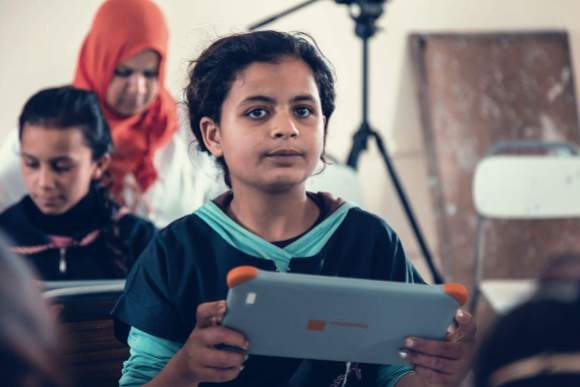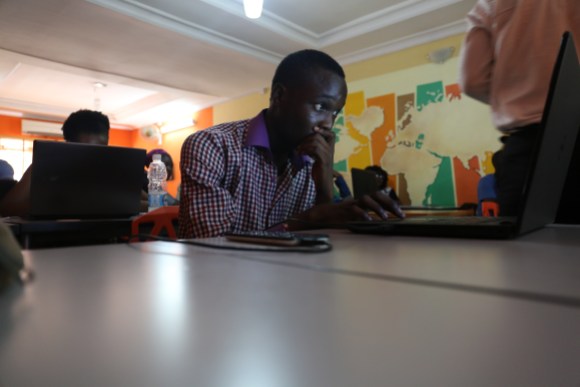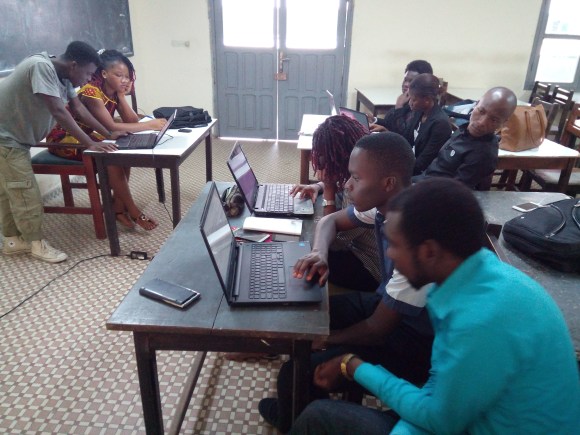
The Wikimedia Foundation and the Project Grants Committee are excited to announce the successful grantees from the Project Grants program!
Twice a year, Project Grants provide community members with funds to realize their ideas for improving the Wikimedia projects. We support individuals, groups and organizations in implementing both new experiments and proven ideas. Projects vary widely in their focus—from building new software to organizing better on-wiki processes, researching an important issue, coordinating an edit-a-thon series, or providing other support for community-building.
Fourteen Wikimedians volunteer their time on the Project Grants Committee to collectively review an average of 25–30 proposals each round. These Committee members come from at least 13 different wikis and collectively speak at least 15 languages. As Wikimedians, their backgrounds vary widely: they are editors, reviewers, content translators, leaders of local chapters, software writers, off-wiki event organizers, workshop facilitators, sysops and bureaucrats, copyright and licensing permission experts, policy advisors, and more. Many members also serve as advisors to new grantees, helping to answer questions, connect them to relevant resources, and comment on monthly and midpoint reports. These volunteers play a critical role throughout the process, including making decisions about how to best use the movement’s money to achieve impact.
In this latest round, 26 eligible proposals were submitted for the committee’s review. The committee has recommended that eleven projects be funded to receive $321,010, divided into three themes: software, online organizing, and offline outreach. Here is what we are funding:

Software: seven projects funded
- Nigerian keyboard project
At present, Wikimedian editors working in Hausa, Yoruba and Igbo have to cut and paste vowels simply to write sentences in their own languages. This project will support new keyboard layout software to improve editing experience, allow for searches of Wikipedia articles, and contribute to the development of an internet culture in these languages. - Feature improvements to Wikimedia Programs & Events Dashboard
The Programs and Events Dashboard is the global Wikimedian community’s platform to organize projects like edit-a-thons and education programs, tracking all contributions by participants. This grant project will build specific new features and improve known shortcomings of the tool. Among other improvements, it will extend access to the Dashboard by enhancing usability on mobile devices. - Wikipedia Cultural Diversity Observatory (WCDO)
The content of each language edition of Wikipedia is skewed toward the cultural and geographic context associated with its own language. WCDO aims to correct this underrepresentation, providing focused data and strategic recommendations for cross-language collaboration so that each language edition will have a truly international representation of the world’s knowledge. - WikiInAfrica/WikiFundi
Wikifundi expands the Kiwix offline reader experience to include an offline editing platform and a suite of training tools that allow educators to adopt the Wikipedia in the classroom program in schools without reliable internet access. These improvements greatly expand the territory of this important educational initiative which teaches critical skills like research, digital and information literacy, and collaboration while training a new generation of Wikipedia readers and editors. - Kiwix/User Experience
Though Kiwix is a widely used tool for bringing Wikimedia projects to areas with limited or nonexistent internet access, its desktop version has become increasingly buggy as the software has deprecated. This project will revamp the user experience and architecture so that Kiwix can continue to serve users around the world for years to come. - soweego
Based out of the University of Trento, the highly trained soweego team will create a fully automatic robot that syncs giant volumes of external information with Wikidata. This robot will directly connect Wikidata with a variety of large, reliable knowledge databases, so that Wikidata can serve as centralized, structured repository of open data. - LinguaLibre
For the past two years, LinguaLibre has been facilitating recordings of pronunciation audio files and encourage contributions in minority languages into Wikimedia projects. This project will extend the impact of this successful project by improving user experience and storing rich and linguistically useful metadata using the Wikibase software.
Online organizing: one project funded
- Community toolkit for Greater Diversity
A team of experienced Wikimedians will develop tailored online and offline training modules to equip veteran volunteers to create a more inclusive, diverse editing community on Indic language Wikipedias. The project aims to design and develop a community toolkit for recruiting, onboarding and retaining editors from underrepresented demographics.

Offline outreach: three projects funded
- Les Classes Wikipedia (Wikipedia Classroom)
This project will continue a successful pilot program in Abidjan, Côte d’Ivoire. Teens and young adults will be trained to create and improve Wikipedia articles, focusing on the 100 most notable Ivorian writers. - Les sans pagEs
The “Les sans pages” groups will expand both its online and offline presence in Europe, engaging the francophone community to collaborate on reducing the gender gap on the French Wikipedia. - WikiDonne roadmap
The WikiDonne team will continue to organize event coordinators across Italy to help promote more gender diversity in Italian Wikipedia. The group aims to increase female biographies by writing at least 250 new articles.
Analysis of trends
Knowledge equity
In line with one pillar of the Wikimedia movement’s new strategic direction, knowledge equity, this round of Project Grants saw many proposals seeking to “focus our efforts on the knowledge and communities that have been left out by structures of power and privilege.” Three projects focus on creating better concrete tools to correct for inequity. The Nigerian keyboard project, for instance, will empower Hausa, Yoruba, and Igbo-speaking editors with one of the most basic and powerful tools an editor needs: a functioning keyboard. At the same time, Kiwix/User Experience and WikiInAfrica/Wikifundi are taking strides to overcome the obstacles posed by limited or nonexistent internet access, making the Wikimedia projects more truly open and available for everyone. Two projects focus on expanding our thinking, pushing the boundaries of our awareness of our own unconscious biases: Community toolkit for greater diversity will take a bold step toward educating Wikimedians about what is required to truly welcome new editors from demographics that are often underrepresented in our volunteer communities. The Wikipedia Cultural Diversity Observatory (WCDO) will invite editors to reflect on how our own language and cultural perspectives limit our ability to see the full breadth of the sum of human knowledge, and offer some initial steps for widening our horizons. Two projects, Les sans pagEs on the French Wikipedia and WikiDonne roadmap on the Italian Wikipedia, will continue to organize Wikimedians to correct for gender bias, empowering female-identified editors to bring their voices to our projects, and inviting all editors to participate in expanding the gender diversity of encyclopedic content.
Much more is needed if we are to realize the ambitious vision that movement direction has set for us in regard to Knowledge equity, and we invite future applicants to continue to dream and scheme about how we can get there.
Research
This round brought needed attention to a seeming bias within Project Grants. Though this grant program includes four themes, research is often entirely excluded. Several Wikimedians spoke up about the missed opportunity it means for the movement when we pass over research proposals from skilled thinkers offering to address some of our most compelling problems. Moving forward, we will be reviewing this trend and seeking ways to support balanced and informed decision-making around research proposals.
Committee recruitment
As we head into 2018, the current dedicated committee members will have completed two years of service with the Project Grants program. We are incredibly grateful for their skillful and impactful work. As some committee members prepare to step down, we are seeking new members to relieve them. As always, we hope to diversify the committee as much as possible with multiple perspectives and skillsets. Anyone is invited to submit your name as a candidate. Our membership criteria is available on Meta, as is the prospective candidates page where you are welcome to add your name by January 15 if you would like to join us. Or you can reach out to the Community Resources team to learn more about this opportunity.
In particular, we welcome reviewers who are qualified to help us to develop a stronger process for evaluating research proposals.
If you or someone you know might be interested in contributing as a committee member, you are welcome to contact me with questions or recommendations at projectgrants@wikimedia.org. Please put “committee candidacy” in the subject line of your email.
Coming up in 2018
The open call for 2018’s first round of Project Grants will launch on 1 January 2018, with applications due on 31 January. Return submissions are welcome, though we ask that you take care to review any feedback submitted by the committee and revise your proposal accordingly first. Office hours for proposal consultation will be posted on the Project Grants Start page by 1 January.
A new Inspire Campaign focused on bringing in new readers—especially in countries where Wikimedia projects are not well known—will begin in January 2018. During this month-long campaign, contributors can submit and review ideas for projects, seek collaborators, move those ideas into grant proposals, or otherwise get support from volunteers and staff to help develop their idea into implementation, such as a newsreel project.
We look forward to reviewing your suggestions and future submissions, but for now we say congratulations to the successful grantees and encourage you to follow their progress as they begin work in the coming weeks.
Marti Johnson, Program Officer, Individual Grants
Wikimedia Foundation

Can you help us translate this article?
In order for this article to reach as many people as possible we would like your help. Can you translate this article to get the message out?
Start translation